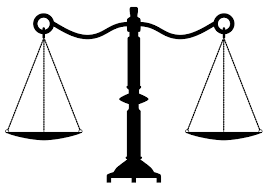What is Consent in a Sexual Assault Case?

A common issue in sexual assault cases is whether or not the sexual activity was consensual. The laws relating to consent in Canada have evolved over the years; however, a recent study by the Canadian Women’s Foundation indicates there are still conflicting interpretations of what it means to give consent. Understanding consent plays a key role in recognizing situations of sexual assault and sexual abuse.
What is sexual assault?
In Canada, the legal definition of sexual assault varies slightly between the Criminal Code and Civil Law. The Criminal Code defines sexual assault as any unwanted sexual act that violates a person’s sexual integrity. This definition includes several levels of sexual assault based on the use of force. Physical contact of a sexual nature without consent is considered sexual assault (for example, unwanted kissing, touching, and intercourse). “Aggravated” sexual assault occurs if the victim is wounded, maimed, disfigured, beaten, or in danger of losing their life. Sexual assault with a weapon includes using, or threatening to use, a weapon to harm a person or someone they know if the person does not consent to the sexual act.
Civil sexual abuse claims are based in the torts of battery and assault. A tort is a wrongful act or injury that leads to physical, emotional, or financial damage to a person, for which another person could be held legally responsible. Civil assault is defined as a threat to commit unwanted physical contact that causes the fear of imminent harm. An assault does not require physical contact but rather the intent to create a fear of harmful or offensive contact with another person without their consent. Battery, on the other hand, requires intentional direct or indirect contact with another person in a harmful or offensive manner without consent. In other words, battery involves unwanted physical contact, whereas assault is the anticipation of unwanted physical contact. In the sexual context, unwanted physical contact does not have to involve intercourse. It can include unwanted grabbing, groping, slapping, touching, and any form of physical contact without consent.
What is consent?
Consent is the voluntary, enthusiastic, and clear agreement between both parties to take part in sexual activity. The responsibility for confirming consent is on the person who is initiating or pursuing the sexual activity. Consent should be clearly communicated every time for every type of activity using words or positive non-verbal cues (for example, nodding “yes”). However, relying on nonverbal cues for consent can be risky and is often not enough to confirm consent. In short, consent is not provided until it is verbally communicated. Without a verbal “yes,” the legal presumption is “no.”
How does consent work?
Consent is ongoing and can be withdrawn at any time. Consent should never be implied or assumed, even if you’re in a relationship or have had sex with the person before. Consenting to one activity, one time, does not mean someone gives consent for other activities or for the same activity on other occasions. For example, agreeing to kiss someone does not give that person permission to remove your clothes. Having sex with someone does not count as consent for that person to have sex with you again in the future.
It’s important to understand that consent is required for everyone, including people who are in a committed relationship or married. In Canada, the law outlines specific situations where consent does not apply, even if both parties have verbally agreed to participate.
Threats or application of force: Someone cannot consent if they are physically forced or threatened with force to engage in the activity.
Abuse of power: Consent cannot be given if it results from someone abusing their position of power, trust, or authority, such as engaging in sexual activity with an employee or student.
Third-party consent: A person cannot consent to sexual activity on someone else’s behalf.
Withdrawn or lack of consent: If someone says or does something that shows they do not agree to start or continue an activity, there is no consent.
Under the influence: Agreeing to sexual contact while drunk can still be considered consent unless someone is intoxicated to the point of becoming unconscious or losing the ability to control their body.
Advance consent: No one can legally consent in advance to sexual activity in the future when they will be unconscious. Consent must be present at the time the sexual activity takes place.
What is a mistaken belief in consent?
The defence of “mistaken belief in consent” may be invoked if the initiating party interprets lack of consent as voluntary consent to engage in a sexual act. A person cannot say that they mistakenly believed someone was consenting if:
- The belief of consent is based on one’s own intoxication
- They were reckless about whether the other person was consenting
- They chose to ignore cues that showed a lack of consent
- They failed to take reasonable steps to check if there was consent
The steps to establish a reasonable belief of consent are discussed in the case R v Cornejo. Cornejo went to visit his coworker at 1:00 a.m. His idea of an invitation was a phone call from his coworker consisting of muffled and unclear sounds. This phone call was made after the coworker had told him not to come over. By the time Cornejo arrived at his coworker’s residence, she was passed out drunk on the couch. She did not answer the door when Cornejo knocked, so he entered without permission. Upon Cornejo’s entering, his coworker woke up and asked what he was doing there. Cornejo proceeded to kiss and undress his coworker, claiming that she moved her hips to help him take her clothes off. The coworker awoke fully when Cornejo was touching her naked body, and she demanded that he leave immediately.
The trial judge authored a decision in favour of Cornejo that was successfully appealed. The Court of Appeal ruled that the coworker was clearly intoxicated at the time and had told Cornejo not to come over earlier the same evening. Cornejo assumed consent based on passivity and non-verbal responses (the coworker moving the position of her hips). It was up to Cornejo to secure clear verbal consent that his coworker’s previous rejection had changed and that she was a willing participant in the sexual acts. As a result, it was determined that Cornejo did not take reasonable steps to establish a belief of consent.
Legal Help for Sexual Assault Claims
The decision to come forward with a sexual assault claim can often take years due to physical, emotional, and mental trauma. In Canada, the law recognizes that survivors of sexual assault need time to process the abuse and cannot be reasonably expected to pursue legal action right away. For this reason, there is no time limit for filing sexual assault claims in Nova Scotia.
Survivors of sexual abuse and assault have several legal options to fight for justice and hold the guilty party accountable. One option is to pursue criminal charges that can lead to the accused being arrested and possibly convicted if there is enough evidence. A civil action allows sexual assault survivors to file a claim against the perpetrator or the institution that employed them to recover compensation. For groups of individuals that have been sexually assaulted or abused by the same assailant(s), the survivors can collectively file a class-action lawsuit against the individual(s) or institution.
An experienced sexual assault lawyer in Halifax, Nova Scotia (also referred to as a sexual offence lawyer) can assess your case and advise you on your legal options. Valent Legal offers free, no-obligation confidential consultation services for survivors of sexual assault and abuse. We are here to listen and help you fight for the justice you deserve.






















